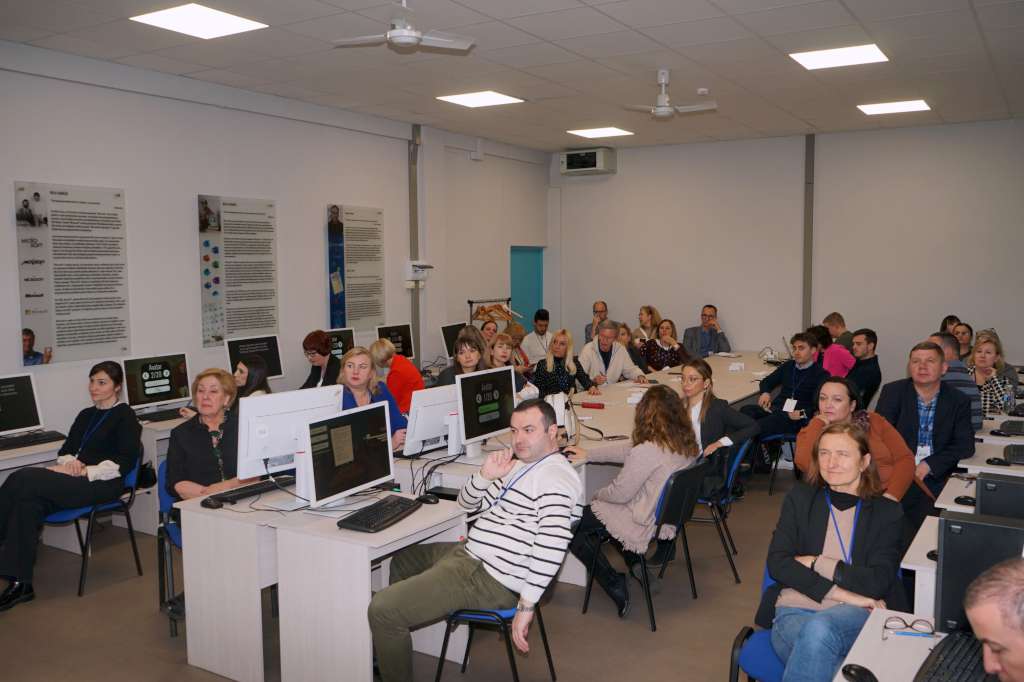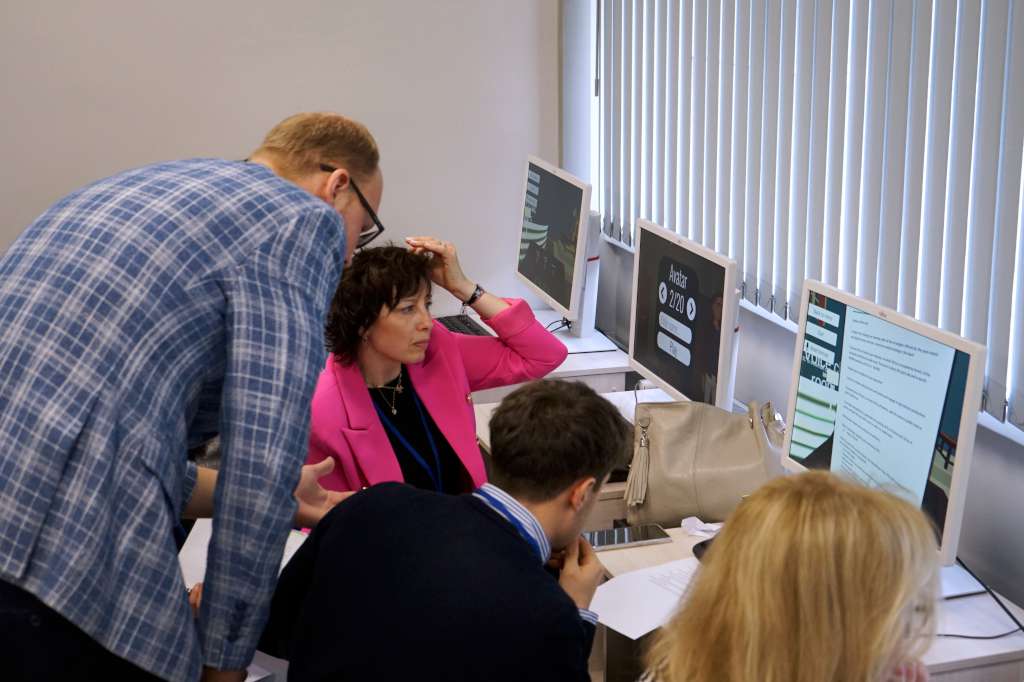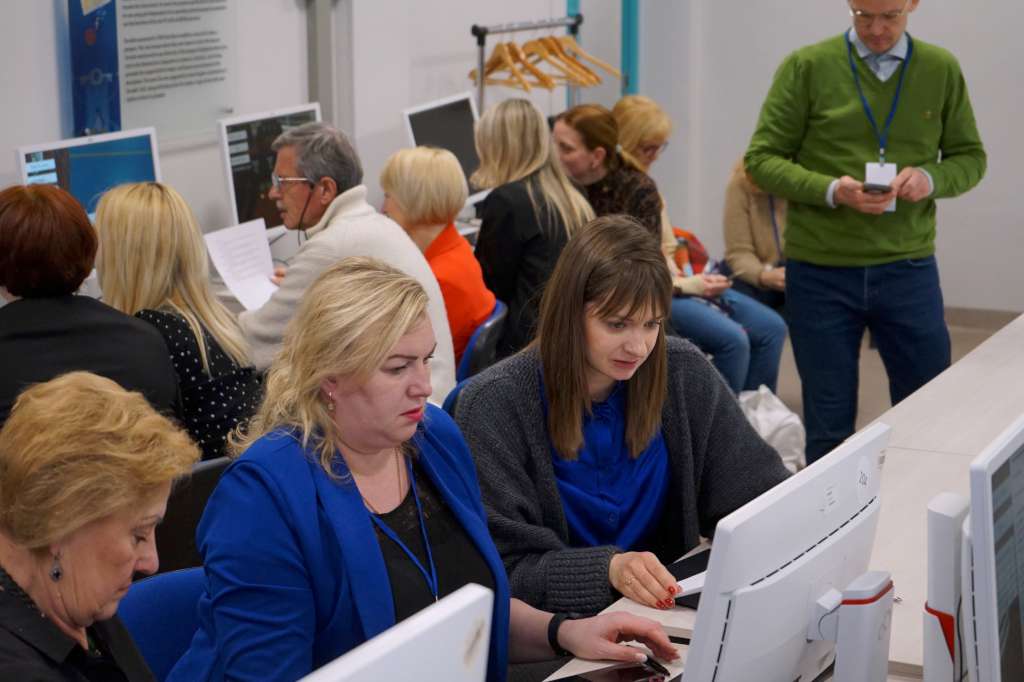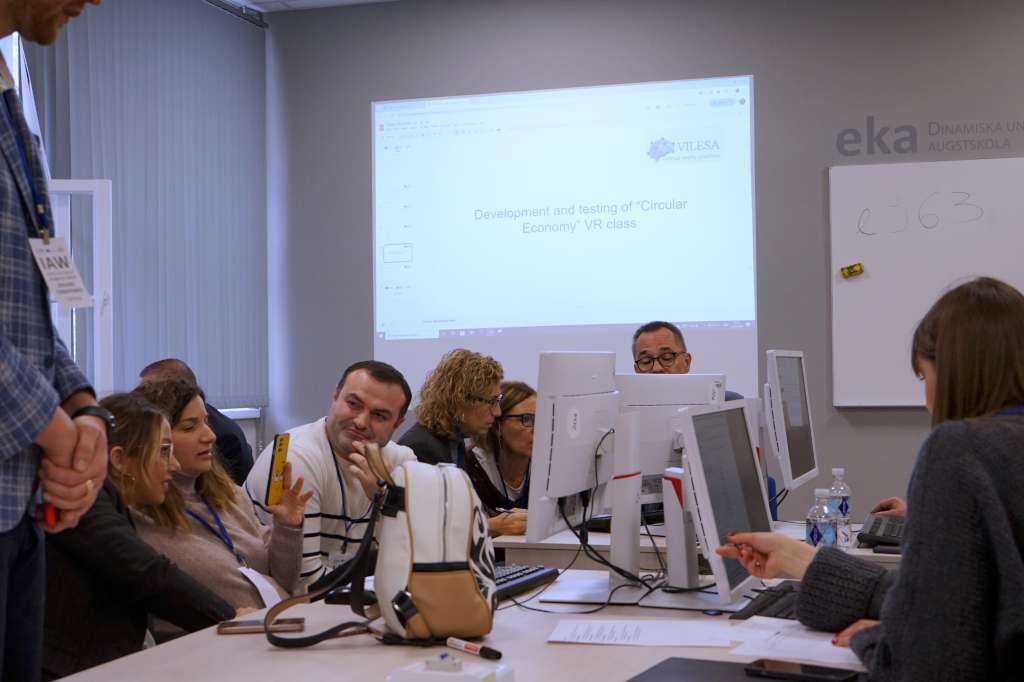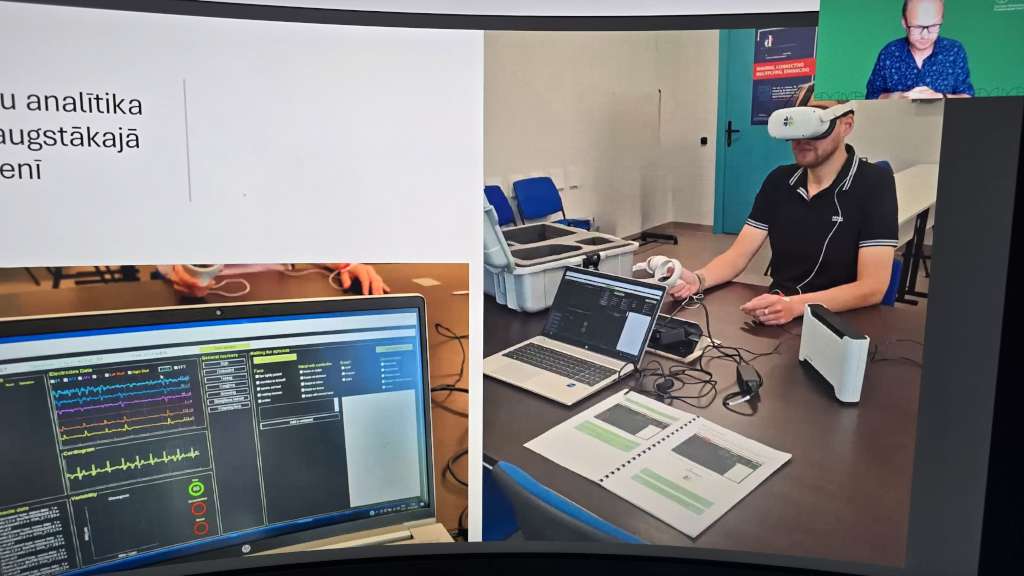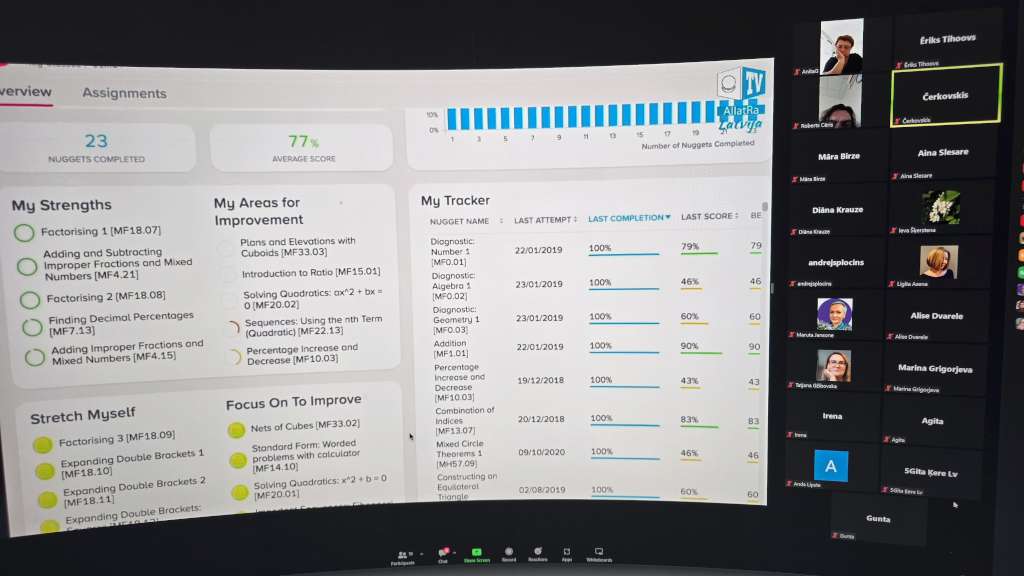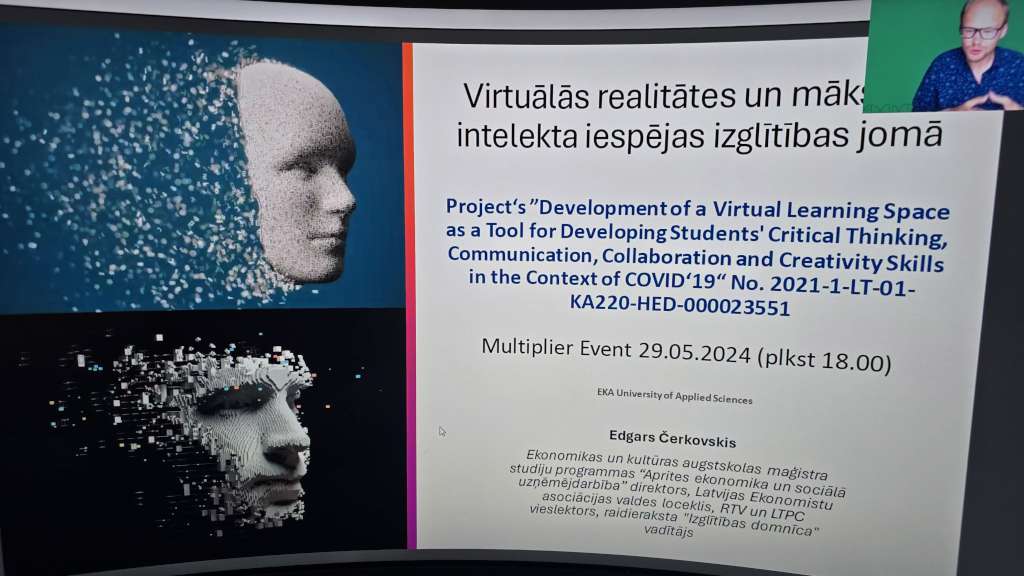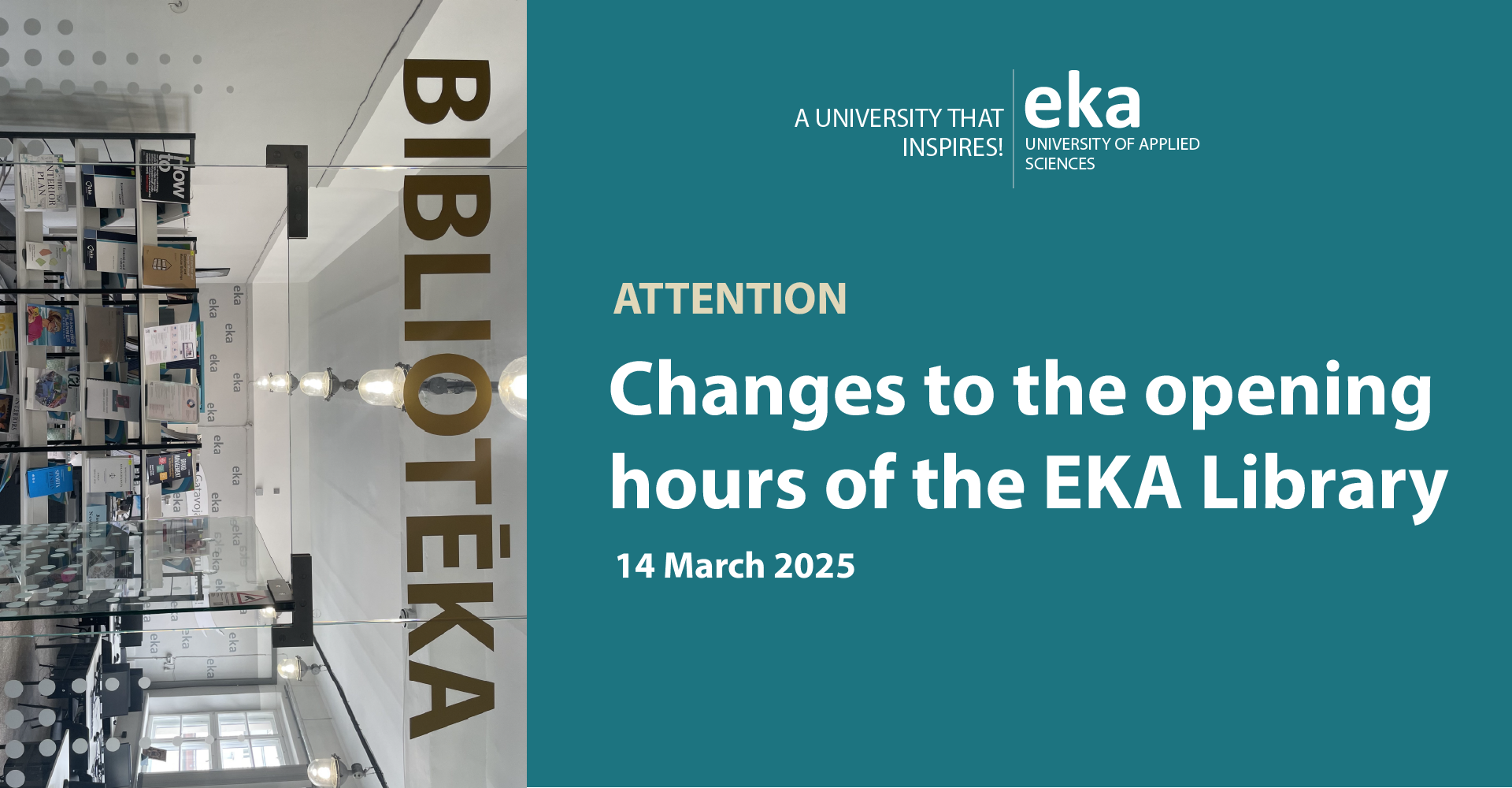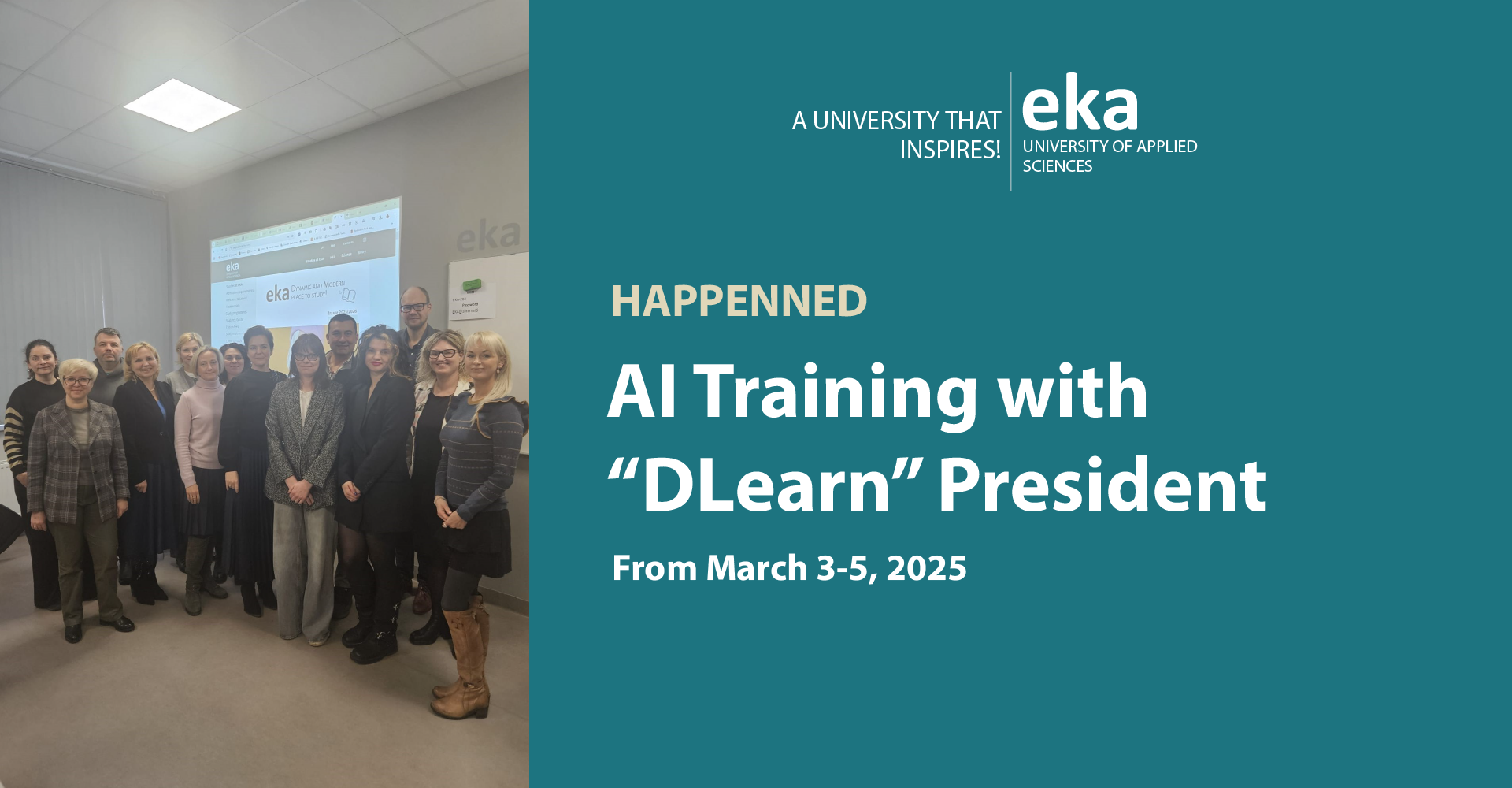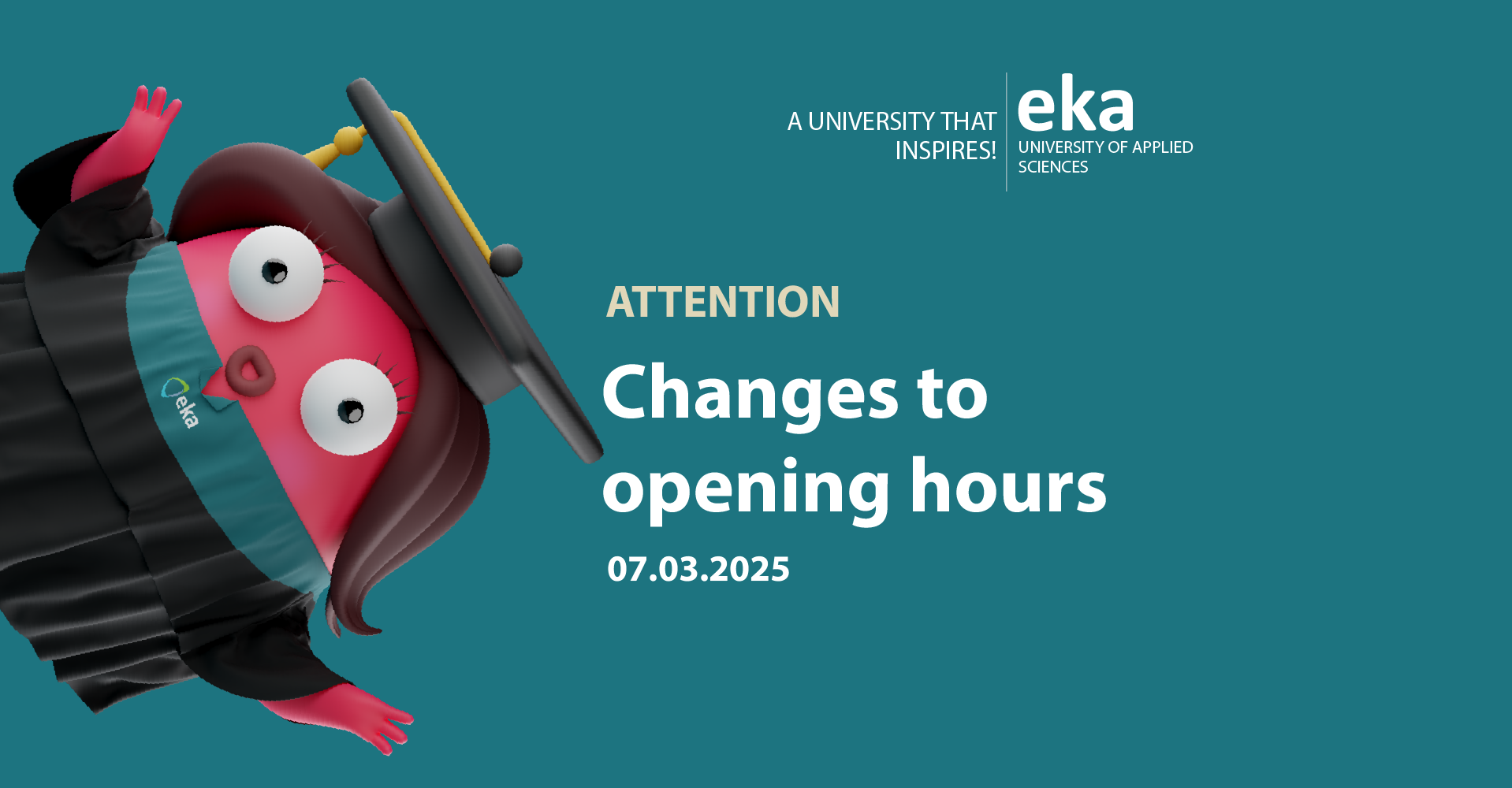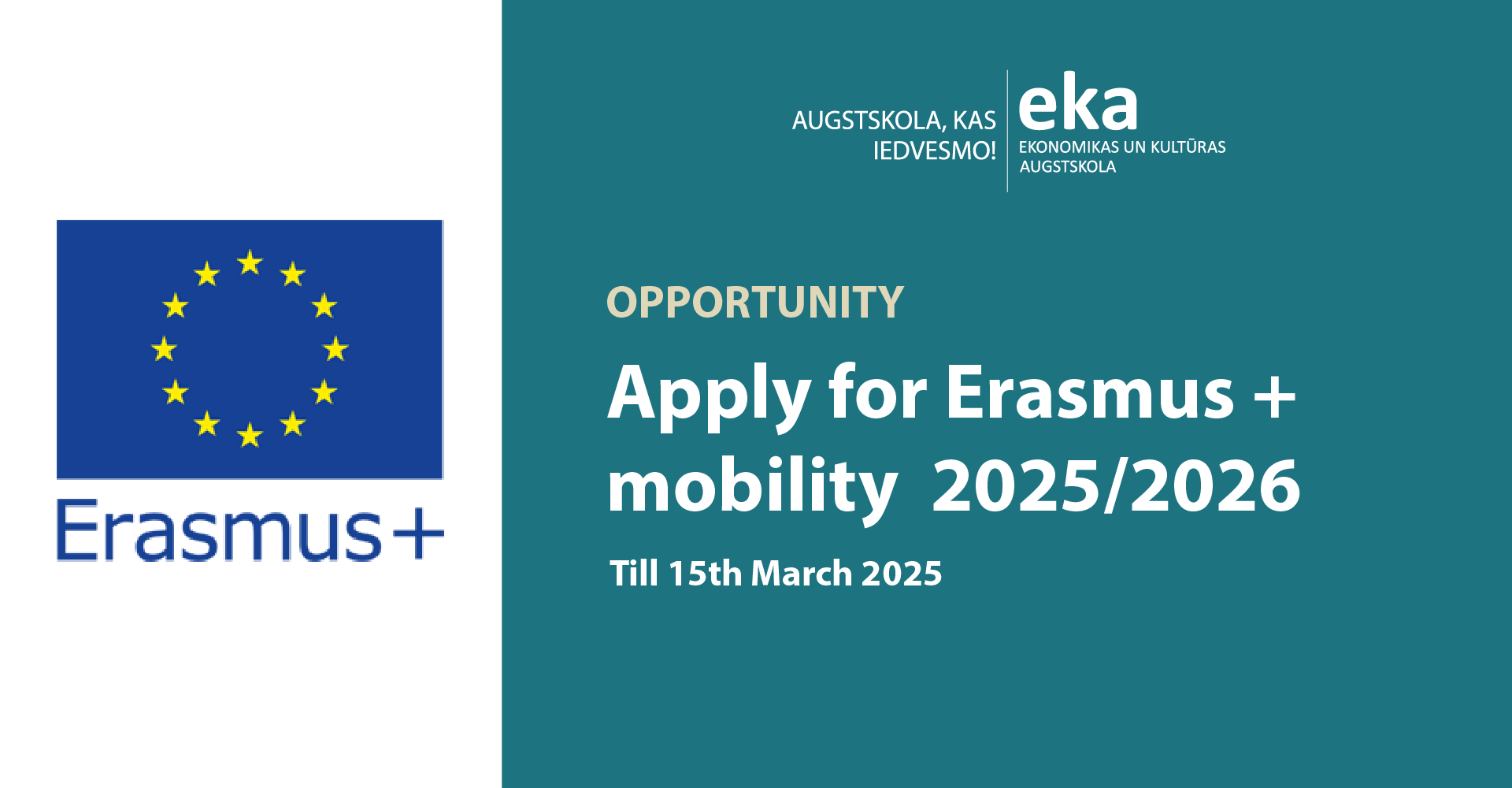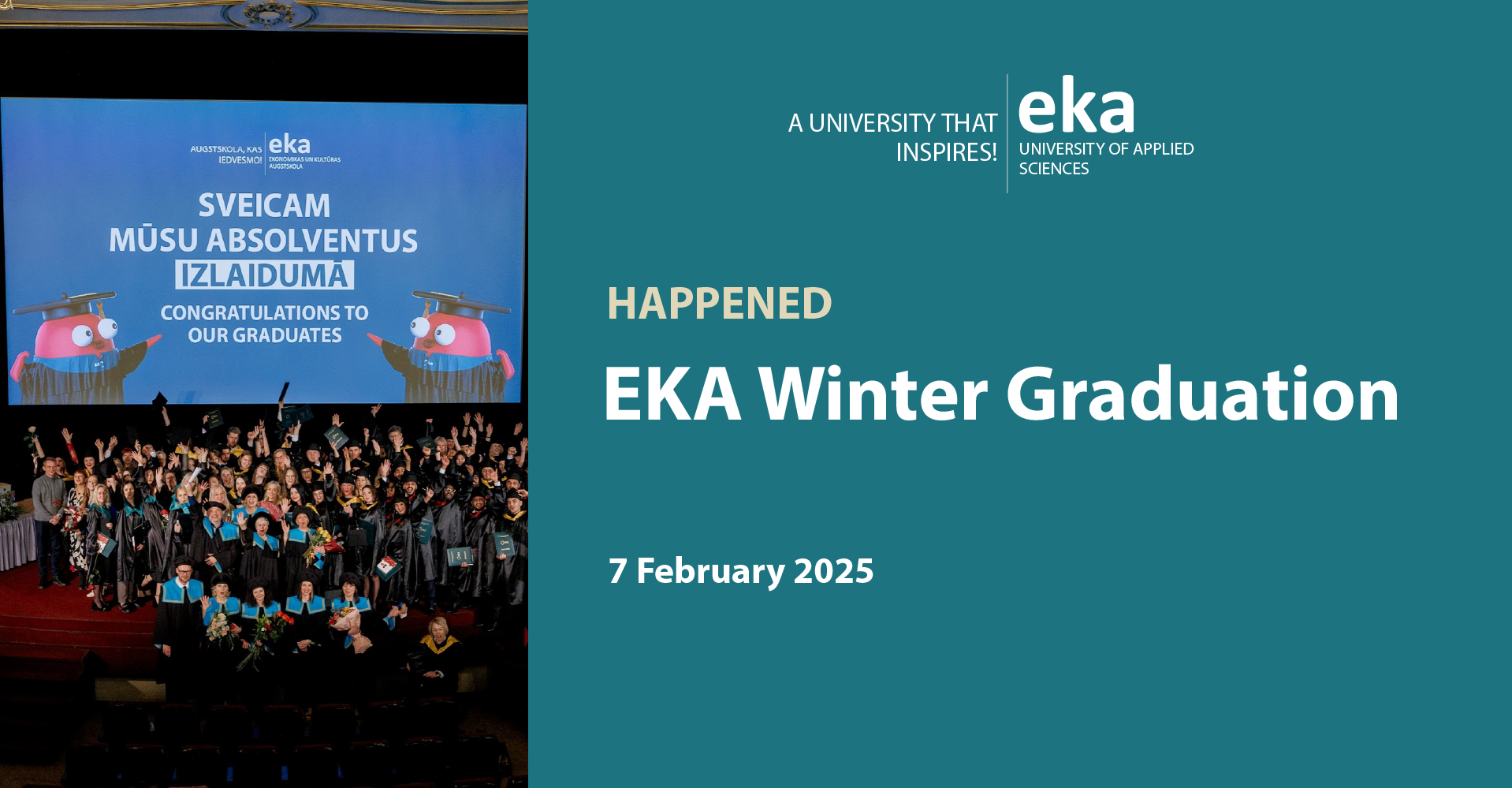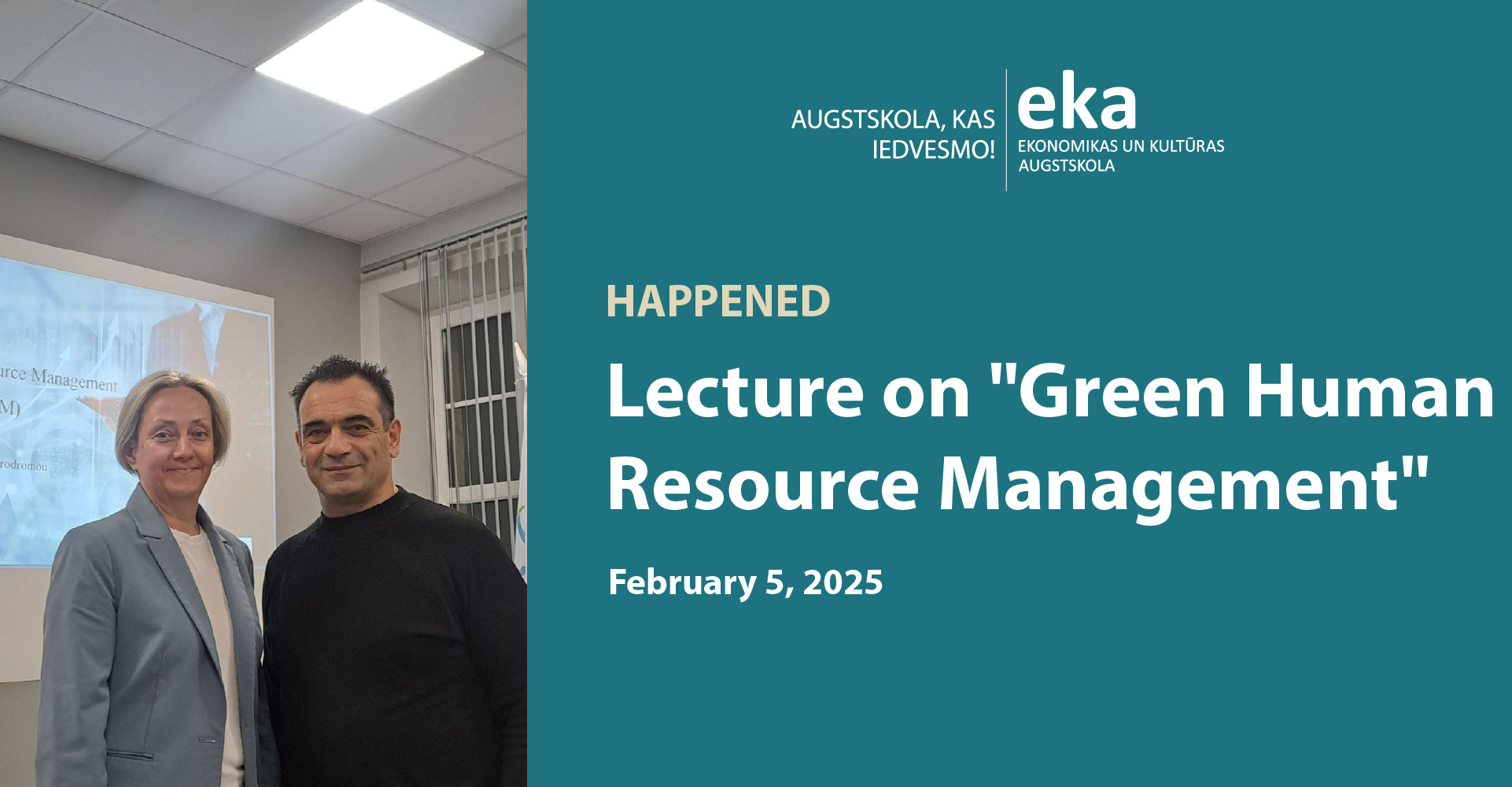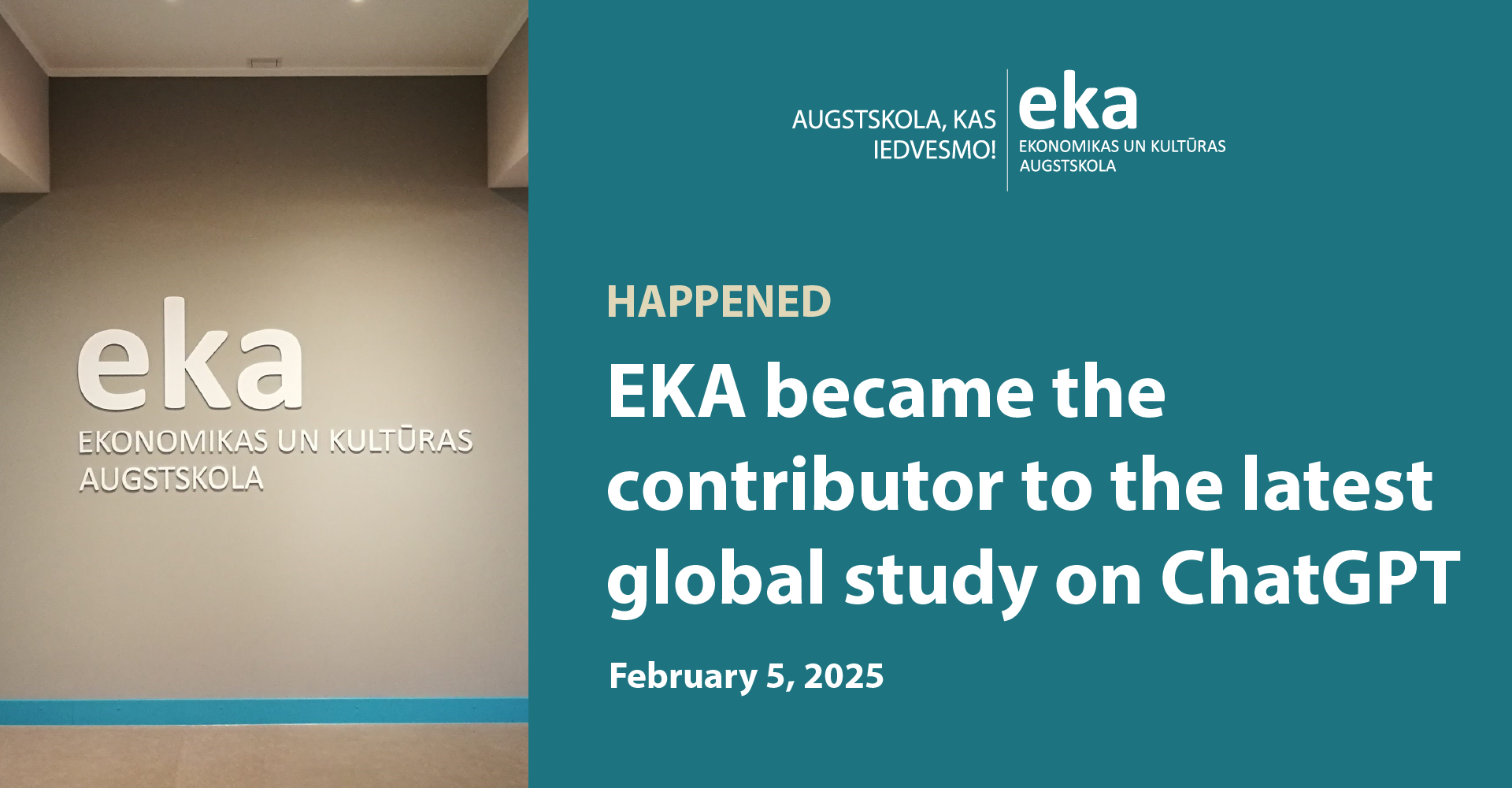
VILESA Project Multiplier Event
During the multiplier event of the VILESA project, which was organized by the EKA University of Applied Sciences (EKA) in two parts on April 23 and May 29, 2024, the results achieved during the implementation of the project were presented to a wide audience.
During the International Academic Week (IAW) 2024 held at the end of April, the staff of foreign universities from 13 countries got acquainted with it, while at the online event held at the end of May, students and teaching staff of local Latvian distance learning institutions got acquainted with it. Both events made it possible to demonstrate the virtual reality (VR) projects developed in the VILESA project and to tell about their use in the learning process. During them, valuable insights were gained for the further improvement of these materials.
The first part was held at EKA in person for the participants of IAW 2024 and was attended by 33 teaching staff from the universities of Lithuania, Latvia, Ukraine, Poland, Spain, Georgia, Hungary, Italy, Greece, Portugal, Turkey, the USA, Germany, and the Czech Republic. During it, a VR teaching tool on circular economy was presented and tested, which was developed within the project by the director of the master′s study program "Circular Economy and Social Entrepreneurship," Mg.oec. Edgars Čerkovskis. It was led by the project manager of the EKA Scientific Institution, Dr. Kaspars Šteinbergs, and the author, Edgars Čerkovskis. At the end of the event, a survey of those present was conducted in order to obtain an evaluation of the participants and recommendations for improving the teaching material.
The second part took place online, and during it, Edgars Čerkovskis introduced the participants to the current possibilities of using virtual reality and artificial intelligence in education, as well as the VR learning tools created during the implementation of the VILESA project. The event was attended by teachers and students of the Riga Distance Education High School, teaching staff, and students of the Latvian Distance Education Professional Center, for a total of 24 participants.The VILESA project’s goal is to solve the problems of the application of modern teaching and learning methods in the social sciences by digitizing the study content using the virtual reality platform. The application of modern technologies to the digitization of study content encourages creativity and creates opportunities for users to get involved in the content creation process themselves. Encouraging creativity and adapting content to the younger generation of learners (Generation Z) is based on developing practical skills while reducing environmental impact and contributing to business sustainability. The project is intended to reinforce and sustain such positive behavioral trends.
The second part took place online, and during it Edgars Čerkovskis introduced the participants to current events about the possibilities of using virtual reality and artificial intelligence in the field of education, as well as the VR learning tools created during the implementation of the VILESA project. The event was attended by teachers and students of the Riga Distance Education High School, teaching staff and students of the Latvian Distance Education Professional Center, a total of 24 participants.
VILESA project’s goal is to solve the problems of application of modern teaching/learning methods in social sciences by digitizing the study content by using Virtual reality platform. The application of modern technologies to the digitization of study content encourages creativity and creates opportunities for users to get involved in the content creation process themselves. Encouraging creativity, adapting content to the younger generation of learners (Generation Z) is based on developing practical skills while reducing environmental impact and contributing to business sustainability. The project is intended to reinforce and sustain such positive behavioral trends.
VILESA is financed and supported by the European Commission, Erasmus+ Programme, Key Action 2 – Cooperation partnerships in higher education (grant agreement No. 2021-1-LT-01-KA220-HED-000023551).

